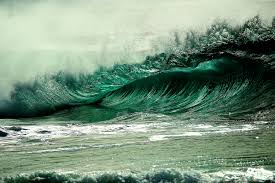

One of my favorite author topics is characterization: who your characters are and how they view their world. There are many books I’ve read and movies I’ve seen in which I don’t remember the plot line or conflicts years later, but I still remember the character and it feels like someone I know personally.
So how do we get to know characters when we are reading a book or watching a movie?
There are several ways: dialogue, inner thoughts, showing their response to an event through their mannerisms and reactions, to name a few.
But another way is by showing how your character notices his/her surroundings. For example, imagine your character has just learned that his girlfriend has died. What details in the desert scene above would he notice? How could you show your reader he is lonely and feeling desolate and defeated, without telling them “he feels lonely, desolate & defeated?”
Now, let’s say your character is on vacation with his friends or family and they are hiking in this desert. How would this character describe his surroundings differently than the prior one?
Setting not only sets mood, but also shares an emotional connection with your reader and helps them to understand where your character is at emotionally.
How would a character who likes to surf describe the wave in the second picture above as opposed to a character who can’t swim well? How can this character show readers the sheer panic he is feeling by how he describes the wave? As a recent young author described it at a recent conference: the waves were fingers on a hand, reaching out to grip me and hold me under as I struggled for air.



What feeling do you get when you look at the details of the first flower? Maybe feelings of reflection, relaxation or time slowed down? Would a soldier about to fight a battle, notice the details of this flower or would he/she be too busy using other heightened senses to notice and describe it if he/she is straining to hear whispers of the enemy in the grass or through the thick fog? Maybe the person does notice while reflecting on past memories as time slows down and death could be near. Or maybe they don’t. Maybe the field of flowers would look more like the blurred second picture, if commented on at all as the soldier is running and focused on staying alive.

Which words come to mind when you hear the descriptive details of delicate petals on cold granite? Lonely? Grieving? Desolate? Reflective?
How your character notices their surroundings will quicken or slow the pace of your book to how you want it. It will also build trust between your characters and your readers, turning your characters into breathing entities whom readers can identify with and relate to.
As a personal example, I had the amazing opportunity to stay at the Four Seasons Resort in Pembine, Wisconsin this past weekend. Upon checking in, I had no idea it had been rumored to be a popular hot spot for Prohibition mobsters, which is what my most recent book is about (https://writtendreams.com/store/Pre-order-Under-the-Dirt-Sky-by-Callie-Trautmiller-p448257504). After talking to some of the locals and bartenders and hearing about its haunting (vintage cars starting by themselves during the night, a deceased bride whom roams the hallways), new feelings arose in me every time I had to get up to go to the bathroom or walk the hallway alone during the night. I viewed the place in a much different way (even as it made me love it even more): feeling of paranoia and edginess, but fascination as well.
So how do you view the world?
How does your character handle major feelings of grief, loneliness, being in love? SHOW your readers through their descriptions and reactions to their surroundings and you will create life long friendships;)



